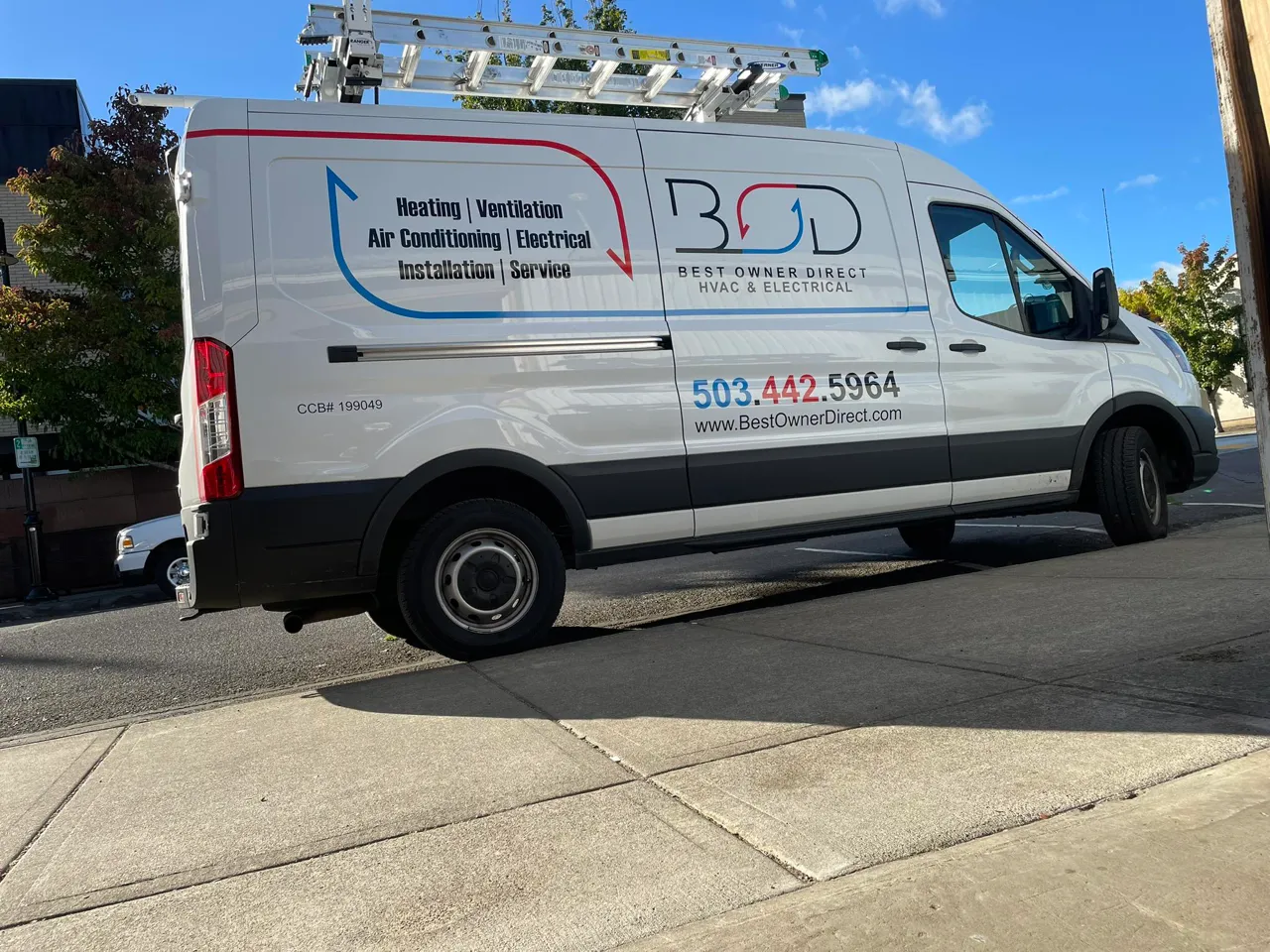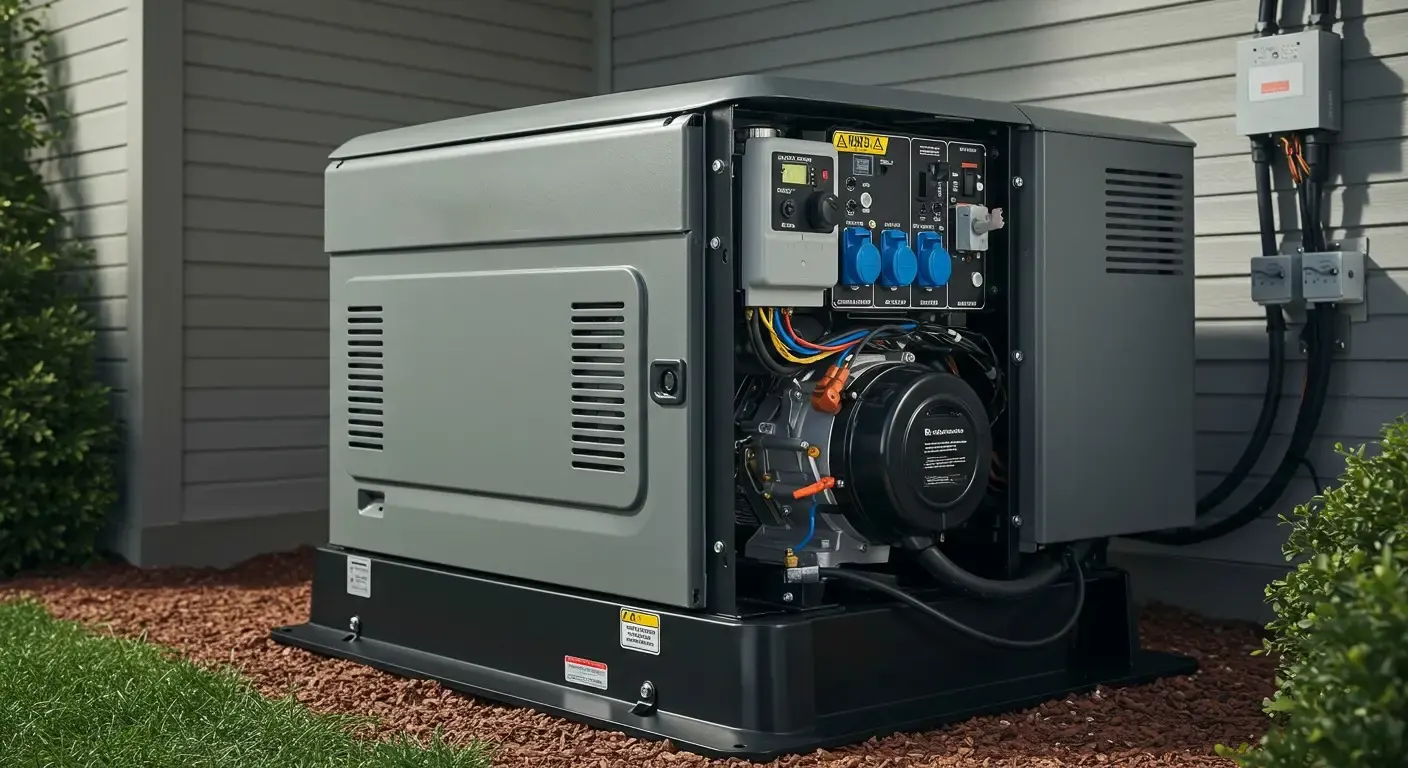Menu
Whole House Generators in Oregon City, OR
Stay powered during outages with whole house generators in Oregon City from Best Owner Direct HVAC & Electrical. Schedule your backup power install today!

Whole House Generators in Oregon City, OR
Power interruptions can bring life to a halt, especially when heating systems, sump pumps, refrigeration, or medical devices are at stake. At Best Owner Direct HVAC & Electrical, we provide expert whole house generator services in Oregon City, OR, ensuring your home remains safe and comfortable through storms, outages, and grid strain. From accurate load calculations and fuel type selection to professional installation, permitting, and maintenance plans, we deliver generator solutions built for the Willamette Valley’s demanding weather and modern household needs.
Why a Whole House Generator Is Especially Useful in Oregon City
- Winter storms and wind events in the Willamette Valley can cause multi-hour or multi-day outages.
- Many Oregon City homes rely on electric sump pumps and well systems that require continuous power to avoid property damage.
- Increasing remote work and home medical equipment use raise the cost of downtime.
- Whole house standby systems automatically restore power without manual hookup, protecting food, electronics, and comfort.

Common Whole House Generator Issues in Oregon City
- Insufficient capacity to handle peak starting loads from central air compressors or well pumps.
- Fuel supply interruptions or inadequate propane tank sizing in extended outages.
- Improper transfer switch selection causing partial power or unsafe backfeed.
- Corrosion and moisture-related wear in coastal and humid conditions.
- Lack of routine maintenance leading to battery failure, stale fuel, or oil contamination.
Generator Sizing Guidance: How Much Capacity Do You Need?
Sizing is the most important decision. A professional load assessment should list every major appliance and motor, then calculate running watts and starting (surge) watts. General ranges:
- Essential circuit backup (refrigerator, lights, furnace blower, basic outlets, internet): 7 to 15 kW.
- Typical whole-house backup for medium homes without very large electric heating: 20 to 30 kW.
- Large homes, homes with central air and electric water heating, EV charging, or multiple high-demand appliances: 30 to 60+ kW.
Key sizing tips:
- Include starting currents for motors (air conditioners, pumps). Motors require 2 to 4 times running watts at startup.
- Add a 20 to 30 percent margin above calculated running load to avoid nuisance overloads.
- If planning future upgrades (EV charger, heat pump), size for future loads now to avoid a second installation.
Fuel Type Options: Natural Gas vs Propane
- Natural gas: Excellent for extended outages because it provides continuous fuel as long as the utility gas mains are operating. Ideal for homeowners on a reliable gas supply. Consider local utility interconnection rules.
- Propane: Offers independence from the gas grid. Useful when you prefer a self-contained system. Propane runtime depends on tank size and load. Typical 500 gallon tanks can run a mid-size generator for multiple days at partial loads. Propane tanks and delivery logistics need planning for extended outages.
- Hybrid considerations: Some homeowners combine a primary fuel with a secondary supply plan. Fuel choice affects placement, permitting, and runtime estimates.
Transfer Switch Options and Electrical Integration
- Automatic transfer switch (ATS): Transfers power seamlessly within seconds when the grid fails and is strongly recommended for whole house installations. It prevents backfeed and protects utility workers.
- Manual transfer connection: Less convenient and not recommended for whole house applications; suitable only for portable generator scenarios.
- Panel integration: In many homes a service panel upgrade or subpanel installation is required to properly supply all circuits. The transfer switch must match the generator capacity and local electrical code.
Site Preparation, Permitting, and Inspections
- Site prep: Level concrete or polymer pad, clearances for exhaust and service access, noise considerations, and compliance with neighborhood setback rules. Installations in Oregon City must consider rainwater drainage and possible frost in cold snaps; cold-weather kits and battery heaters are common add-ons.
- Permits: Expect electrical and mechanical permits, fuel permits for propane or gas line installations, and inspections from the local building department. Utility notification or interconnection agreements may be required if tapping natural gas mains.
- Code requirements: Generators must be sited to meet carbon monoxide safety setbacks and ventilation rules. CO detectors in the home remain essential.
Professional Installation Steps
- Site survey and load calculation to determine size and fuel choice.
- Permitting and utility coordination.
- Pad and fuel line installation, or propane tank placement and connection.
- Generator set placement, ATS installation, and electrical integration to main service.
- Fuel line pressure testing, system startup, and commissioning test.
- Instructional walkthrough on system operation and maintenance schedule.
Routine Maintenance Plans and What They Cover
Regular maintenance keeps a standby generator reliable when you need it most. Typical annual maintenance includes:
- Oil and filter change per manufacturer hours.
- Air filter replacement and spark plug inspection for gasoline models.
- Battery test and replacement as needed.
- Coolant checks and antifreeze top-up for liquid-cooled units.
- Exercise cycle run and load bank testing to confirm capacity.
- Fuel system checks, valve inspections, and propane regulator verification.
- Corrosion prevention and enclosure seals inspection for Oregon City’s moist climate.
A maintenance agreement often includes priority service, seasonal checkups, discounted parts, and scheduled exercise cycles.
Warranty and Service Agreements
- Standard manufacturer warranties vary; many residential standby generators carry limited warranties from 2 to 5 years. Extended warranty and service plans cover parts and labor beyond factory terms.
- Look for plans that include emergency response, annual preventative maintenance, and clear terms for replacement parts.
- Verify whether installation labor is covered under any installer-provided workmanship warranty.
Choosing the Right System for Uninterrupted Home Power
- Get a professional on-site evaluation that considers your HVAC, well or sump pumps, electric ranges, EV chargers, and medical equipment.
- Prioritize automatic transfer switches and sizing that covers motor starting currents.
- Match fuel strategy to outage risk: natural gas for long-term continuous fuel when available, propane for off-grid independence.
- Plan for local conditions in Oregon City: cold-weather options, corrosion protection, and noise mitigation for neighborhood settings.
Final Benefits and Long-Term Considerations
A properly sized and professionally installed whole house generator delivers reliable, automatic power during outages, protecting comfort, safety, and property. Regular maintenance and a robust service agreement maximize uptime and extend equipment life. For Oregon City homeowners, a standby generator is a practical investment that addresses storm-related outages, wet-season risks to basements and sump pumps, and modern household dependency on continuous power. Proper planning now avoids emergency decisions later and ensures your home remains safe and functional when the grid goes down.
For final decisions, rely on a licensed installer who can perform accurate load calculations, guide fuel and siting choices, manage permitting, and provide long-term service and warranty support tailored to Oregon City requirements.
Stay Powered Through Every Outage: Install a Whole House Generator Today
Don’t wait for the next storm to leave your family in the dark. With Best Owner Direct HVAC & Electrical, you’ll get expert generator installation, seamless transfer switch integration, and tailored maintenance programs that ensure reliable backup power when it matters most. Our team helps Oregon City homeowners choose the right size, fuel type, and setup for lasting protection. Contact us today to schedule your generator consultation and secure uninterrupted comfort, safety, and peace of mind year-round.


